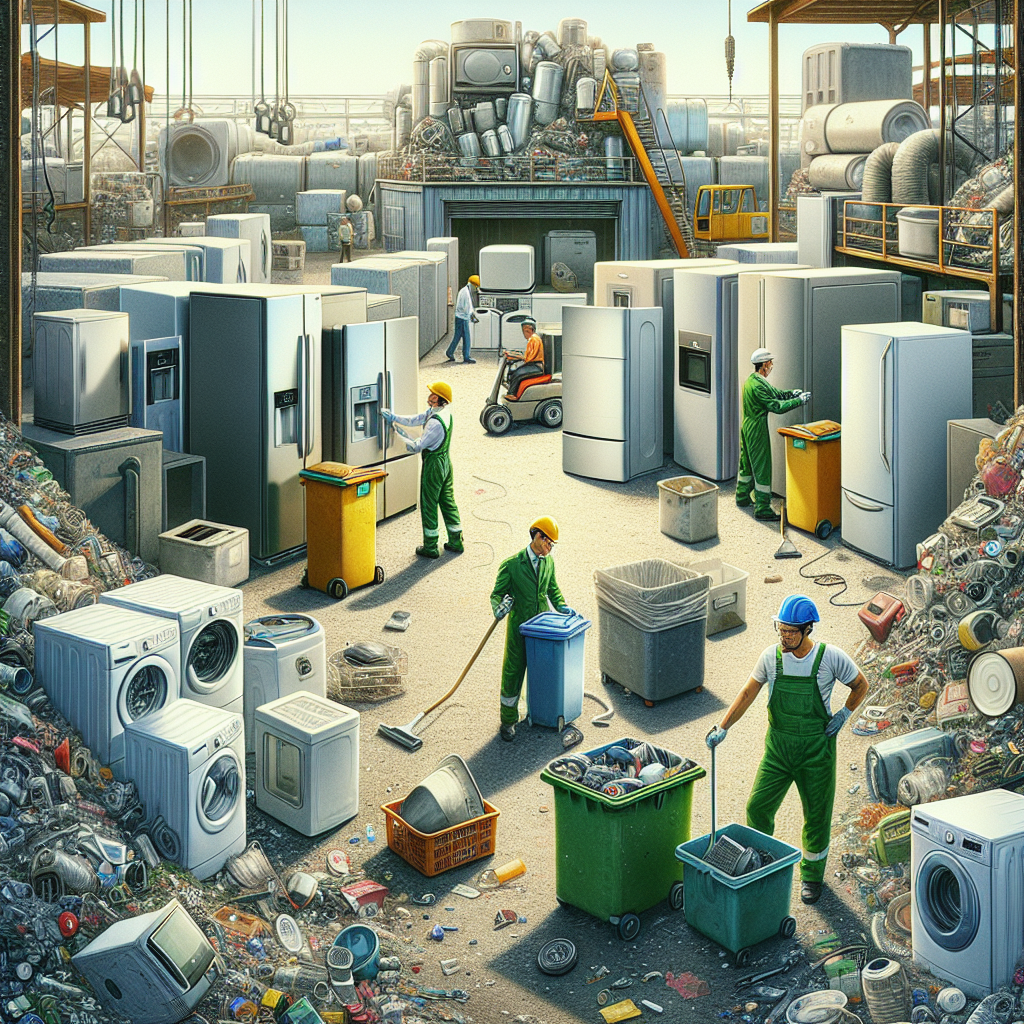Blog Ecobraz Eigre

Large household appliances: shared responsibility for disposal
The proper disposal of large household appliances involves a shared responsibility between manufacturers, consumers and regulatory bodies, as established by the National Solid Waste Policy (Law No. 12.305/2010). Reverse logistics is central to the management of this waste, minimizing environmental impacts and promoting sustainability.
Legal Context of Shared Responsibility
The National Solid Waste Policy (PNRS), established by Law No. 12.305/2010 (planalto.gov.br), defines shared responsibility as the involvement of various players - manufacturers, importers, distributors, retailers and consumers - in the management of solid waste. For large household appliances, this means that correct disposal is not only an obligation of the end user, but also requires efforts from other links in the chain to ensure proper collection, reuse and recycling.
Reverse Logistics and Obligations of the Actors
Reverse logistics is a mechanism provided for in the PNRS to enable the collection and return of products after consumption, encouraging reuse and environmentally correct disposal. According to article 33 of the law, the production chain must structure efficient systems to collect and treat waste from large household appliances, including mechanisms for disposing of obsolete or disused appliances.
The consumer, in turn, must dispose of them responsibly, avoiding irregular disposal on public roads or dumps, which can cause contamination and other environmental impacts.
Safe Disposal of Electronic Equipment
For appliances that have electronic components and data media, it is essential to guarantee information security in the disposal process. The use of specialized HD sanitization services guarantees the safe disposal of personal and corporate data, avoiding the risk of exposure of sensitive information (electronic scheduling).
Collection and Final Disposal
Authorized collection points and formalized reverse logistics systems ensure that large appliances are sent to appropriate sorting and recycling centers, promoting the recovery of valuable materials and the environmentally appropriate disposal of hazardous waste. For correct disposal, it is recommended to use recognized services, which can be scheduled via specialized platforms that offer safe and regulated collection (eletronicos agendamento).
Environmental Impacts and Complementary Regulations
Inappropriate disposal of large household appliances can cause damage to soil, water and public health, due to the presence of toxic substances in their components. Environmental agencies such as CETESB provide specific regulations for the handling and disposal of this waste (cetesb.sp.gov.br).
In addition, the National Solid Waste Management Information System (SINIR) provides essential data for monitoring and evaluating reverse logistics programs (sinir.gov.br).
Conclusion
Shared responsibility in the disposal of large household appliances is a fundamental practice for sustainability and compliance with current legal provisions. The engagement of all those involved in the chain, coupled with the use of specialized collection and sanitization services, contributes to mitigating environmental impacts and to information security.

Deixe um comentário
O seu endereço de e-mail não será publicado. Campos obrigatórios são marcados com *